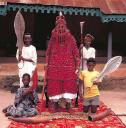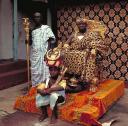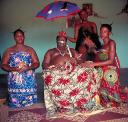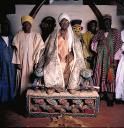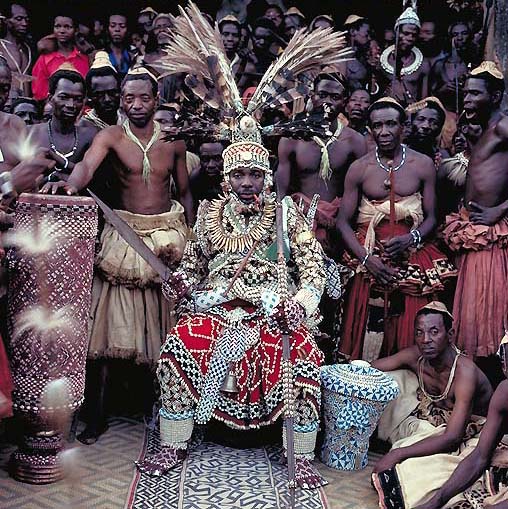
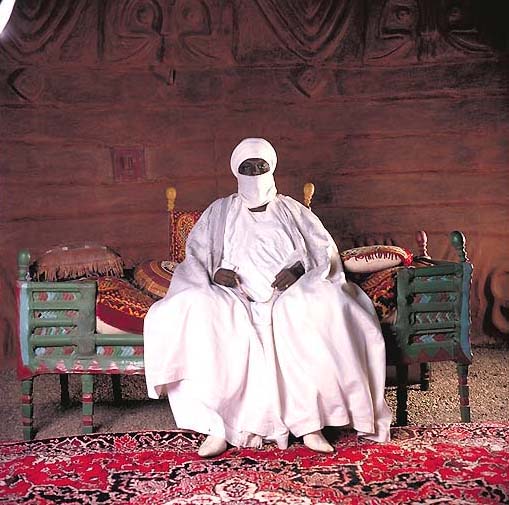
via: tamarin
In 1983, while passing through Ouagadougou( capital of Burkina Faso), a friend came one morning to anounce the death of Moro Naba, the emperor of the Mossi. Anyone who knows Bukina Faso, knows that the Moro Naba is an undeniable element of the society. In his palace, located in the center of Ouagadougou, he ruled traditionally over all the different Kingdoms which compose the Mossi Empire. Far from being a simple remembrance from the past, the Emperor is still to this day, an important element of underground power.
For more than ten days, I followed the burial ceremonies of the deceased Emperor, and the coronation of his succesor. I met people who seemed to be very implicated in the traditional Mossi society, but I was shocked when I further learned, that these same people occupied important administrative and governmental functions.
Althrough representing the future and modernisation, once dressed in traditional attire, they seemed to evolve naturally in the Naba’s strange world and courtyard of fetishers( sorcerers ).The African continent is often the theatre of such contrasts, where parallel worlds overlap in permanence, making it difficult for an outsider to analyze.
There are still several hundred monarchs on this continent. While some amongst them have been relegated to the level of touristic curiousities, others still maintain significant traditional and spiritual power. Born of dynasties which marked the history of Africa until the twentieth century, these kings are the source of underground power with which “modern governments” have to exist.
Contrary to the Indian Maharajas, they have survived the upheavals of history, and evolve in a parallel world but which is very real.However, for some Africans, they are the shameful incarnation of the failure of archaic systems in the face of western colonization. They are blamed for their tribal conservatism which blocks the passage of traditional African societies toward modern states. For others, they are the guarantors of old cultural bases, the ultimate rampart before the anguish of an uncertain and tumultuous future. Be that as it may, they are still a presence in the countries, a reality that needs to be included.
Tamarin




